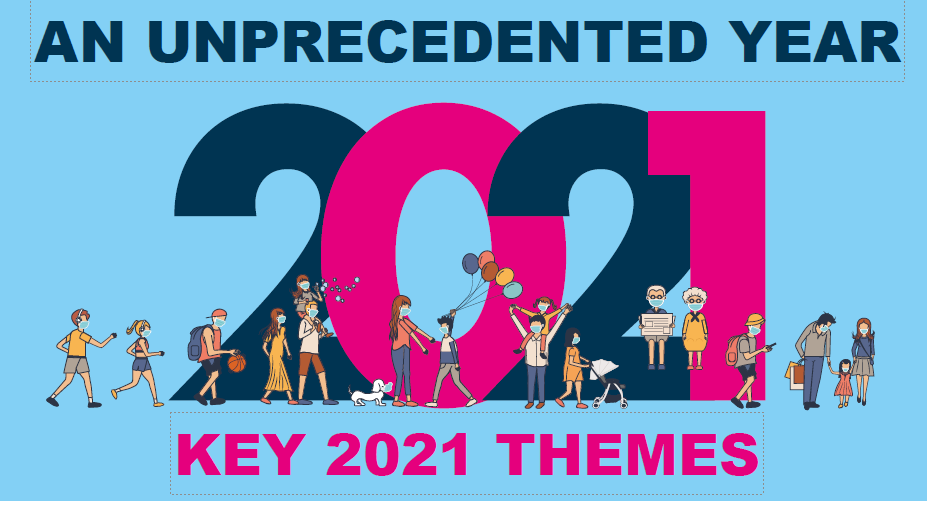Knowledge Hub
Join the Conversation!
Impartial and independent, ThoughtLeaders4 HNW Divorce Knowledge Hub hosts cutting edge industry content and insight.
Email maddi@thoughtleaders4.com to submit content.
HNW Divorce Magzine_Year in Review_Issue 7_AN UNPRECEDENTED YEAR KEY 2021 THEMES
Date: 04/01/2022 Type: Articles Community Magazine Topic: HNW Divorce | ADR | Children | Client Perspective | Finances | Modern Family | Remote Hearings | Arbitration | Private FDR’s | Early Neutral Evaluations |The year 2021 began with the country being in its third national lockdown and trying to navigate its way through the Covid-19 pandemic. In his ‘Road Ahead’ article of 10 January, Sir Andrew McFarlane, President of the Family Division, noted footfall in court buildings would be kept to a minimum, courts would facilitate remote attendance of all or some of those involved in hearings as the default position. Mass vaccinations were a most welcome light at the end of the tunnel, although the return to anything like the normal working of a family court may not be achieved for some time. The President predicted that beyond the relaxation of the rules, there would still be a significant proportion of remote and hybrid hearings as the country got back to normality. The ‘Road Ahead’ guidance given in June 2020 would continue to apply, with the key concerns being the significantly high volume of work remaining with an expectation of limited facilities to conduct face-to-face hearings. It was accepted that any delay in cases would prejudice the welfare of children; adjourning cases for many months would not be an option. By July 2021, the President continued to be profoundly impressed by the delivery of family justice in navigating a complicated system so different from the norm.
On 20 October 2021, the Farquhar Committee produced a report on the role of remote courts in the post-pandemic environment and the procedures of the Financial Remedies Court (FRC) Amongst its findings, advantages of remote hearings outweighed the disadvantages and recommended that most hearings at which no evidence is to be given, should be heard remotely. Electronic bundles would remain the norm unless otherwise ordered.
There was also guidance specific to the FRC to include time estimates for specific hearings, court staffing, length of court documents, hearing dates and specific references to Forms E, consent orders. The changes in the family courts are expected to be gradual, and policies kept under review as the court continues its recovery from the pandemic which has undoubtedly accelerated the modernization of the family court; the positive elements of the pandemic will be retained.
In this article, I explore some 2021 themes that have been key and continue to play part in unprecedented times in the family law world.
The year 2021 began with the country being in its third national lockdown and trying to navigate its way through the Covid-19 pandemic. In his ‘Road Ahead’ article of 10 January, Sir Andrew McFarlane, President of the Family Division, noted footfall in court buildings would be kept to a minimum, courts would facilitate remote attendance of all or some of those involved in hearings as the default position. Mass vaccinations were a most welcome light at the end of the tunnel, although the return to anything like the normal working of a family court may not be achieved for some time. The President predicted that beyond the relaxation of the rules, there would still be a significant proportion of remote and hybrid hearings as the country got back to normality. The ‘Road Ahead’ guidance given in June 2020 would continue to apply, with the key concerns being the significantly high volume of work remaining with an expectation of limited facilities to conduct face-to-face hearings. It was accepted that any delay in cases would prejudice the welfare of children; adjourning cases for many months would not be an option. By July 2021, the President continued to be profoundly impressed by the delivery of family justice in navigating a complicated system so different from the norm.
On 20 October 2021, the Farquhar Committee produced a report on the role of remote courts in the post-pandemic environment and the procedures of the Financial Remedies Court (FRC). Amongst its findings, advantages of remote hearings outweighed the disadvantages and recommended that most hearings at which no evidence is to be given, should be heard remotely. Electronic bundles would remain the norm unless otherwise ordered.
There was also guidance specific to the FRC to include time estimates for specific hearings, court staffing, length of court documents, hearing dates and specific references to Forms E, consent orders. The changes in the family courts are expected to be gradual, and policies kept under review as the court continues its recovery from the pandemic which has undoubtedly accelerated the modernization of the family court; the positive elements of the pandemic will be retained.
In this article, I explore some 2021 themes that have been key and continue to play part in unprecedented times in the family law world.
Author
Olive Gathoni - International Family Law Group
Our HNW Divorce Corporate Partners
















